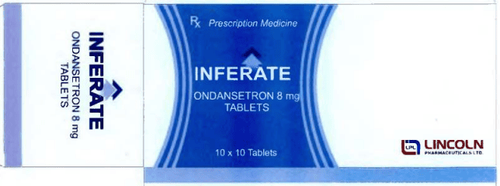This is an automatically translated article.
Headaches and dizziness cause patients a lot of discomfort, reducing the quality of life and work of many people. So how to solve the above problems? The following article would like to send readers information about the Agihistine 24 drug line that effectively supports the treatment of dizziness and Meniere's syndrome.
1. What is Agihistine 24?
Agihistine 24 belongs to the group of psychotropic drugs, used to treat symptoms of dizziness, headache, tinnitus, .... The drug has the main ingredient is Betahistine dihydrochloride 24 mg, is made in the form of tablets. hard capsule, which is a type of medicine prescribed by a doctor.
2. Indications for the use of Agihistine 24
Agihistine 24 is used in the following cases:
Dizziness caused by vestibular. Meniere's syndrome: Tinnitus, dizziness, vomiting, headache, hearing loss.
3. Dosage and how to use Agihistine 24
Agihistine 24 is used orally, the patient should take the tablet whole with water (do not chew or crush), should take the drug with meals or after eating.
The appropriate dose of the drug will depend on the subject and the medical condition of each person.
Adults: Take 1-2 Agihistine tablets/day. Betahistine dose should not exceed 48 mg/day. Dosage can be changed to suit the needs of each patient, the disease may improve after about a few weeks of taking the drug. Renal and hepatic impairment: There are no clinical studies in this subject, however, dose adjustment of Agihistine is not necessary. Elderly: No dose adjustment of Agihistine is required. Children: The use of Agihistine in children and adolescents under 18 years of age is not recommended because safety data are not available.
4. Contraindications when using Agihistine 24
Agihistine 24 should not be used in the following cases:
Peptic ulcer. Adrenal myeloma. Patients with hypersensitivity to Betahistine or to any ingredient of the drug.
5. Drug Interactions Agihistine 24
Agihistine 24 may interact with some drugs when combined, such as:
Antihistamines when combined with Betahistine may increase side effects. MAOIs Antidepressants Drugs to treat Parkinson's disease.
6. Side effects when using Agihistine 24 treatment
When patients use Betahistin for treatment, they may experience some side effects such as:
Gastrointestinal disorders causing vomiting, discomfort, indigestion. The most common neurological disorder is headache. Immune system disorders such as hypersensitivity reactions, anaphylaxis. Mild stomach upset, abdominal pain, and bloating usually go away when taken at the same time as food or when the dose is reduced. Skin and Skin Tissue Disorders: Presence of skin hypersensitivity reactions, neuroedema, rash, urticaria and pruritus. Patients should inform their doctor, pharmacist of the side effects they experience to have the direction to stop taking the drug or change to another medication.
7. Precautions when using Agihistine 24
Before taking Agihistine, patients should carefully consult the following notes.
Be careful when using Betahistin for patients with asthma, peptic ulcer disease or a history of peptic ulcer. Betahistine should be used with caution in patients with urticaria, allergic rhinitis, and skin rashes, because it may aggravate the condition. Betahistine should not be used in patients with severe hypotension. Betahistin should not be used in patients with hereditary problems of galactose intolerance, the Lapp lactase enzyme deficiency, glucose-galactose malabsorption. Do not use Betahistine during pregnancy & during lactation. Not recommended for use in children under 18 years of age.
Please dial HOTLINE for more information or register for an appointment HERE. Download MyVinmec app to make appointments faster and to manage your bookings easily.













